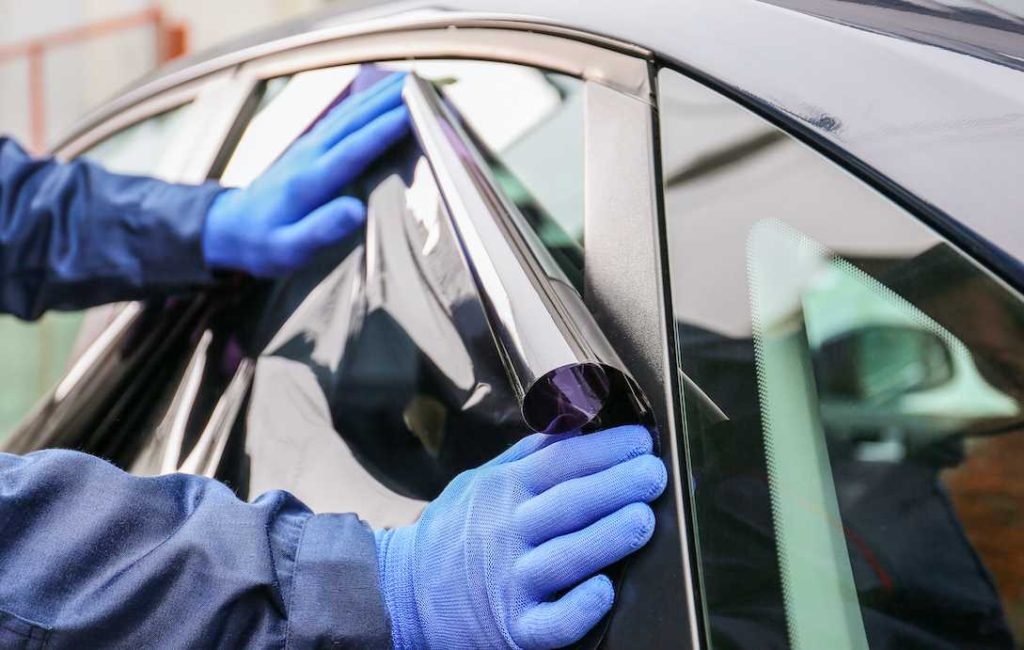Car glass tinting is a quick, stylish solution to enhance your vehicle’s privacy, comfort, and appearance. It reduces glare, keeps your car cooler, and adds a sleek look that turns heads on the road. If you’re considering tinting your car windows, it’s essential to understand the benefits, legal guidelines, and how to choose the right tinting service to get the best results.
In a nutshell, car glass tinting involves applying a thin film to your vehicle’s windows to improve comfort and aesthetics. It’s a cost-effective upgrade that offers privacy, UV protection, and a modern touch to your vehicle. Proper installation ensures durability and compliance with local laws, making it a worthwhile investment for any car owner.
Getting your car windows tinted is a popular choice for drivers looking to upgrade their vehicle’s style and functionality. The process involves professional application of specialized films that block out excessive sunlight and UV rays, making driving safer and more comfortable. Whether you want to shield your interior from fading, enjoy enhanced privacy, or simply give your car a fresh, modern look, tinting is the perfect solution. With so many options available, knowing what to expect and selecting an experienced installer can make all the difference in achieving excellent results that last.
Car Glass Tinting: Everything You Need to Know
What Is Car Glass Tinting?
Car glass tinting involves applying a thin film of tinted material on the inside of your vehicle’s windows. This process helps control sunlight, heat, and glare while adding privacy and style to your car. The tint can range from light to dark, depending on your preferences and local regulations.
Types of Car Window Tints
There are several types of window tinting films, each with unique features. These include dyed tints, metalized tints, hybrid tints, and ceramic tints.
Dyed Window Tints
Dyed tints are the most affordable option. They absorb sunlight and reduce glare without affecting visibility much. However, they might fade over time and provide less heat reduction than other types.
Metalized Window Tints
These films contain tiny metallic particles that reflect heat and sunlight. They are durable, block UV rays well, and improve privacy. On the downside, they can interfere with electronic signals like GPS or mobile signals.
Ceramic Window Tints
Ceramic films are the highest quality and most expensive. They block heat, UV rays, and glare without interfering with electronic signals. They also stay clear longer and resist fading.
The Benefits of Car Glass Tinting
Tinting your car windows offers many advantages.
- UV Protection: Blocks up to 99% of harmful ultraviolet rays, protecting your skin and the car’s interior.
- Temperature Control: Keeps the car cooler by reducing heat from sunlight, especially in summer.
- Enhanced Privacy: Makes it difficult for outsiders to see inside your vehicle, keeping your belongings safer.
- Glare Reduction: Improves driving comfort and safety by reducing glare from the sun and headlights.
- Protection for Interior: Less fading and cracking of seats, dashboard, and other surfaces caused by sun damage.
- Appearance Improvement: Gives your car a sleek, stylish look that stands out.
Legal Regulations on Car Window Tinting
Every state or country has laws controlling how dark your window tints can be. These laws specify the minimum visible light transmission (VLT) percentage.
Common Tint Laws
– Front Side Windows: Usually require a minimum of 70% VLT (meaning they let in at least 70% of light).
– Back Side Windows and Rear Window: Can be darker, with some areas allowing only 20% VLT.
– Windshield: Usually only a non-reflective tint on the top strip, if allowed.
Checking Local Laws
Always verify your state’s or country’s regulations before tinting. Violations can result in fines, failed vehicle inspections, or the need to remove the tint.
The Process of Car Glass Tinting
Getting your car windows tinted involves several steps to ensure a clean, long-lasting finish.
Preparation
The technician cleans the windows thoroughly to remove dust, dirt, and grease. A clean surface ensures proper adhesion of the film.
Cutting the Film
The tinting film is cut precisely to fit your vehicle’s windows using templates or digital measurements.
Application
The film is carefully applied to the inside of the windows, removing air bubbles with a squeegee. Excess film is trimmed for a perfect fit.
Drying and Curing
The tint needs time to dry and adhere fully. This could take a few hours to several days depending on the film type and climate.
Choosing a Professional or DIY
While DIY tinting may seem tempting, professional installation guarantees a better, bubble-free finish. Professionals have the right tools, experience, and access to high-quality films.
Pros of Professional Tinting
– Quality work with a seamless finish
– Better adherence and durability
– Knowledge of local tinting laws
– Often includes warranties
DIY Tinting Considerations
– Cost-saving option
– Requires patience and skill
– Risks of bubbles, peeling, or uneven application
– Suitable for smaller windows or partial tint jobs
Maintaining Your Car Tint
Proper care extends the life and appearance of your tint.
Cleaning Tips
– Use mild, non-abrasive cleaning solutions
– Avoid ammonia-based cleaners
– Use a soft cloth or sponge
– Wait at least 48 hours before cleaning after installation
Common Issues and Fixes
– Bubbles or peeling can occur if the tint was applied poorly. Professional repairs or reapplication may be necessary.
– Fading or discoloration over time might happen with cheaper films. Upgrading to ceramic or high-quality films can prevent this.
Cost of Car Glass Tinting
Prices vary based on the type of tint, vehicle size, and installer location.
| Type of Tint | Average Cost | Benefits |
|---|---|---|
| Dyed | $100 – $300 | Affordable, decent UV protection |
| Metalized | $200 – $500 | Blocks heat and provides privacy |
| Ceramic | $300 – $800 | High heat rejection, durability, no signal interference |
Final Thoughts on Car Glass Tinting
Getting your vehicle’s windows tinted improves comfort, safety, and style. It’s essential to choose the right type of film based on your needs and local laws. Always work with experienced professionals for the best results and long-lasting performance. With proper care, your tinted windows will provide benefits for years to come while enhancing your driving experience.
NO GLUE Window Tint for BEGINNERS, EASY & SIMPLE Installation | Static Cling Gila Window Tinting
Frequently Asked Questions
What are the benefits of tinting car windows beyond privacy?
Tinting car windows can help reduce glare from the sun, making driving more comfortable. It also blocks harmful UV rays, protecting your skin and the vehicle’s interior. Additionally, tinted windows can improve the overall appearance of your vehicle, giving it a sleek look.
How long does the tinting process typically take?
The installation of car window tinting generally takes between 1 to 3 hours depending on the vehicle’s size and the complexity of the tinting job. A professional installer will ensure the tint is applied smoothly without bubbles or creases, providing a clean finish.
Are there any legal restrictions on how dark car window tints can be?
Yes, most regions have specific regulations regarding the allowable darkness of tint on different windows of a vehicle. These restrictions are in place to ensure driver visibility and safety. It’s important to check local laws before choosing a tint shade to avoid fines or the need to remove the tint later.
What types of tinting films are available for cars?
There are several types of tinting films, including dyed film, metalized film, ceramic film, and carbon film. Each offers different benefits such as durability, heat rejection, and UV protection. Ceramic films are popular for their high performance without interfering with electronic signals in the vehicle.
How should I care for tinted windows after installation?
To maintain the quality of your tinted windows, avoid rolling down the windows for at least a few days after installation. Use only gentle cleaning solutions and soft cloths to clean the windows to prevent scratching or peeling of the tint. Regular maintenance helps keep the tint looking new and effective.
Final Thoughts
Car glass tinting enhances privacy and keeps your vehicle cool by blocking harmful rays. It also adds a sleek, polished look to your car’s exterior.
Proper tinting protects your interior from sun damage and decreases glare, boosting overall comfort and safety during travel.
Choosing the right tinting ensures durability and adherence to local regulations.
In summary, car glass tinting offers practical benefits and aesthetic appeal, making it a smart choice for vehicle owners.
- How To Fix Laminated Windshield Chip Effectively - October 29, 2025
- How To Repair Laminated Glass Crack Effectively - October 29, 2025
- How To Clean Laminated Glass Properly For Sparkling Results - October 29, 2025



